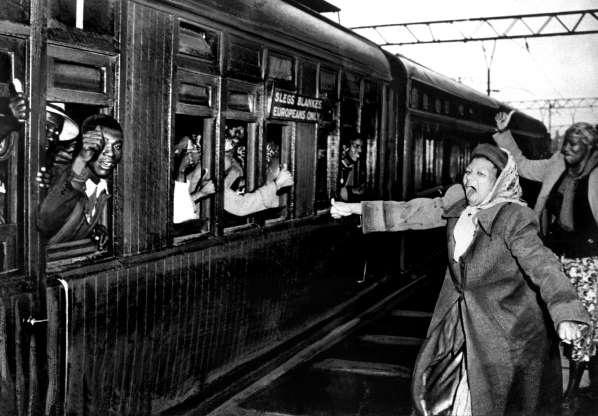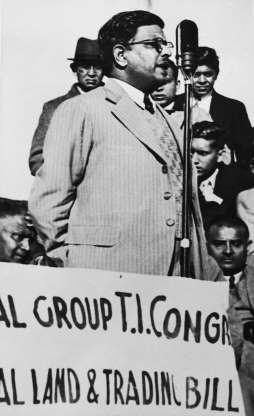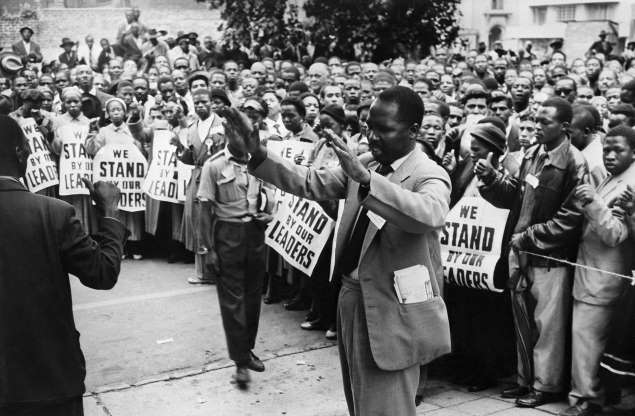Personal Information
Fred Khumalo was born on 4 August 1966 in Chesterville, Durban, Natal (now KwaZulu-Natal), and grew up in Mpumalanga Township close to the industrial area of Hammersdale, Durban. Growing up in the township exposed him to a lot of crime from an early age, which pushed him to focus on his education as a way to escape the violence and poverty that surrounded him.
South African resistance fighters occupy train coaches reserved for whites, during a demonstration in 1952.

Manilal Gandhi addresses a gathering of Transvaal Indians on July 20, 1939

ANC supporters pray in front of the Johannesburg courthouse on Dec. 28, 1956

From: A Crime Against Humanity - Analysing the Repression of the Apartheid State edited by Max Coleman
As we have seen in Chapter 3, detention without trial, besides serving to withdraw political opponents from circulation, is very often a precursor to further actions designed to extend their removal and even to make it permanent.
Such post-detention measures include: